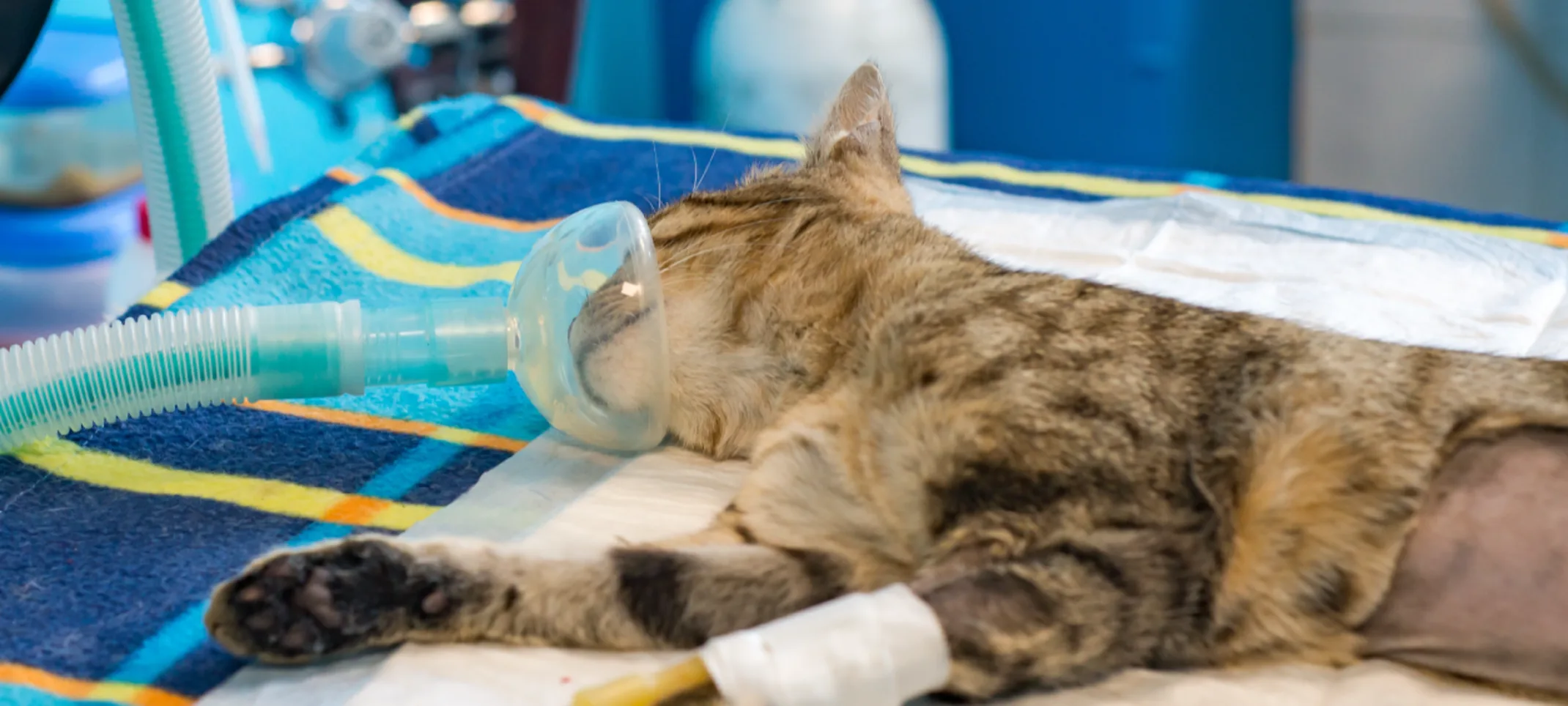Animal Specialty & Emergency Center of Brevard
Neurosurgery
If your pet is diagnosed with a neurological condition, our doctors can provide a variety of surgical services to improve your pet's quality of life.

Common Veterinary Neurological Conditions Which May Affect Your Pet Include:
Spine/brain injuries
Seizures/tremors
Back/neck pain
Weakness and paralysis
Balance disturbances
Additional neurological conditions are:
Spinal cord compression (caused by ruptured disc)
Tumor
Infection
Fracture
Inflammation, via meningitis; or infarction (similar to a stroke)
Comprehensive treatment plans in veterinary neurology could include performing one or more of the following diagnostics: physical examination, x-rays, advanced imaging (CT and MRI), spinal fluid tap, and/or myelogram (an x-ray with contrast material injected to outline the spinal cord).
Neurological Specialties
Brain Abnormalities
The brain is a very complex organ. Several disease processes may affect it, such as inflammation, tumors, toxins, liver or kidney diseases, degeneration, and congenital diseases. If your pet has a disease affecting the brain, you may see a variety of clinical signs. These signs can be as dramatic as seizures, or as subtle as in-coordination; even headaches are suspected, in which case your pet may only be lethargic. Since the brain is not visible on x-ray, advanced imaging modalities such as MRI are often recommended. In addition to imaging, sampling the fluid around the brain and spinal cord via spinal tap may be required to identify the problem and plan specific treatments.
Seizures
A seizure is an imbalance of the neurotransmitters in your pet’s brain that can be potentially fatal if left untreated. Because of this risk, it is always recommended to visit the veterinary emergency room if your pet exhibits seizure activity. Anti-convulsive medications only treat the symptom, not the cause of the disease. Diagnostic tests such as blood test, radiographs, MRI, and spinal tap are commonly recommended for the seizing pet.
Spinal Disorders
Spinal disorders include a wide variety of diseases. You may see different signs that reflect the level of spinal cord disease. Your pet may not be able to use one, two, or all four limbs. The specific tests for spinal abnormalities are CT, CT with myelogram (outlining the spinal cord by injecting contrast material dye around it), spinal tap, and MRI. These tests will require general anesthesia to be performed safely and comfortably for your pet. If a spinal compression is identified, spinal surgery is often recommended to relieve the pressure on the spinal cord. As the spinal cord is a very sensitive organ, earlier decompression results in a higher chance for a full functional recovery.
Neurosurgery – Surgery can be performed to remove spinal cord compression to alleviate pain, in-coordination, weakness, and even paralysis.
Disc Disease
Neuromuscular Diseases
The peripheral nerve (nerves outside of the brain and the spinal cord) and muscle diseases all fall into the realm of neurology. A few examples of these diseases are tick paralysis, myasthenia gravis, laryngeal paralysis, megaesophagus (abnormal dilation of the esophagus), and metabolic muscle diseases. Electro diagnostic testing is one of the most informative methods used to identify neuromuscular disorders. This requires a very sophisticated machine (EMG) with which we can test the electrical activity of the muscles and the conduction capability of the peripheral nerves and spinal cord. The EMG can also evaluate the communication between the peripheral nerves and muscles. In addition to EMG analysis, muscle and nerve biopsies may be required to completely identify a neuromuscular disorder in your pet. In this procedure, very small incisions are made thru which samples of muscle and superficial nerves are collected for microscopic evaluation.
